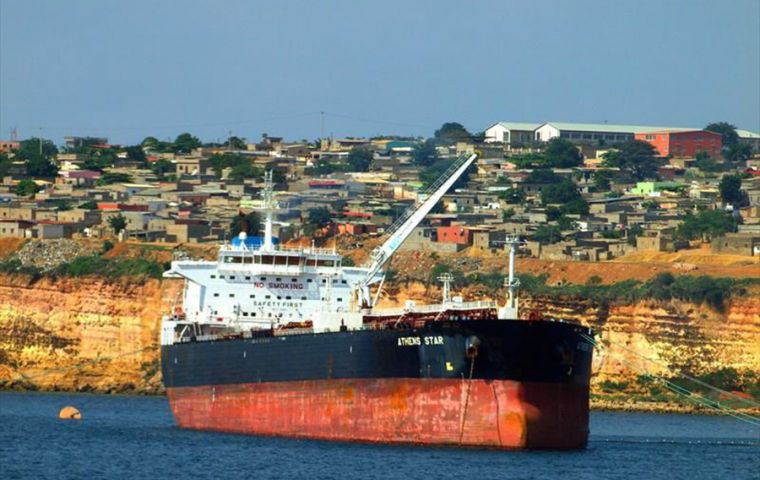MercoPress. South Atlantic News Agency
Argentina's oil exports on the rise
 The Athens Star was also scheduled to deliver another cargo of 490,000 barrels
The Athens Star was also scheduled to deliver another cargo of 490,000 barrels Two shipments of Vaca Muerta crude oil carrying around 490,000 barrels each from Puerto Rosales to Porto Alegre in Brazil represent a sizeable increase in exports from the Neuquén Basin, it was reported.
The cargo ship Amazon Victory entered Puerto Rosales last Sunday to load about 490,000 barrels of crude (78,000 m3), Coronel Rosales Port Management Consortium Chairman Rodrigo Aristimuño said. The freighter left earlier this week for the Port of Tramandai, in Porto Alegre, Brazil. After that, the Athens Star was also scheduled to deliver yet another cargo of 490,000 barrels of oil.
Until October, a total 5,000,000 barrels of oil produced in Neuquén had been exported, which not only exceeded all of 2020's sales abroad, but also set a new trend after shipments were virtually non-existent for over a decade.
This boom is due to the increase in output from Vaca Muerta, which last month reached 200,000 barrels per day (bpd), but also to the entire country's production. Exports are only allowed after nationwide demand has been met, the Río Negro newspaper explained. Output has exceeded the national demand barrier, which is slightly less than 500,000 bpd, the outlet went on.
According to the national Energy Ministry, 21 oil export orders have been fulfilled this month. Among them there were shipments from sources other than Vaca Muerta, such as Escalante, from the San Jorge Gulf Basin. These orders were both of low volume, from companies grouped together, and large ones such as those from Shell or from the joint venture of YPF plus Chevron for the development of Loma Campana, worth 500,000 barrels each.
Orders totaled 5,593,000 barrels and it may be more in the coming months. There are over 4.2 million barrels of Argentine crude available for exports, Rio Negro also pointed out.
Companies are paid more for their exports than what they collect within Argentina under the frozen prices scheme. Sales abroad help compensate that price gap, the newspaper added.
(Source: Río Negro)




Top Comments
Disclaimer & comment rulesCommenting for this story is now closed.
If you have a Facebook account, become a fan and comment on our Facebook Page!